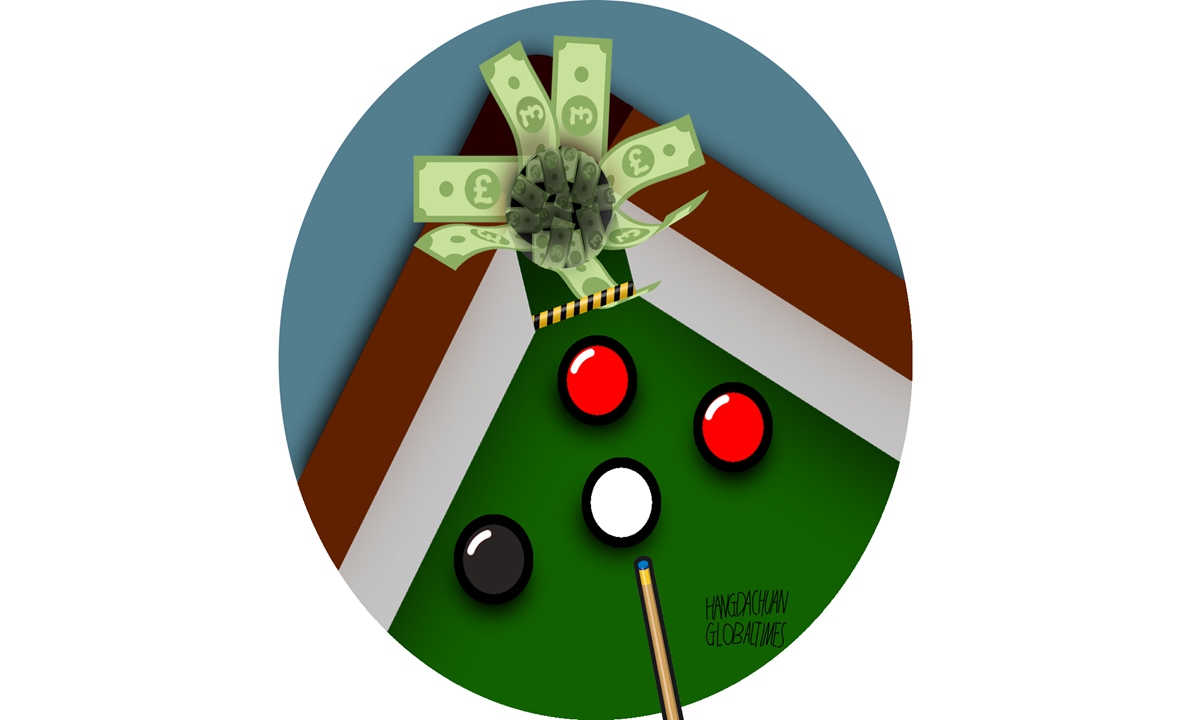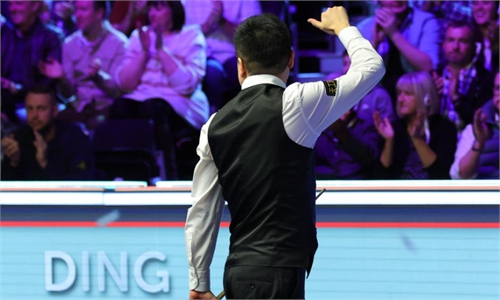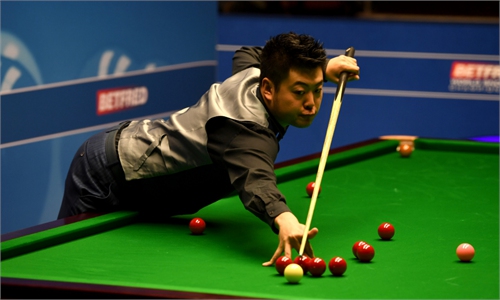ARTS / CULTURE & LEISURE
China’s snooker body reiterates zero tolerance policy after 10 Chinese players banned from competing for match fixing

Illustration: Hang Dachuan/Global Times
After 10 Chinese snooker players were sanctioned by the world snooker body, the Chinese Billiards and Snooker Association (CBSA), China's own snooker governing body, on Wednesday reiterated its zero tolerance policy toward actions that violate the principles of sportsmanship.
Chinese snooker players Liang Wenbo and Li Hang have been handed lifetime bans as part of the group of 10 players penalized by the World Professional Billiards and Snooker Association (WPBSA) on Tuesday for match fixing.
"The CBSA maintains a zero tolerance policy toward behavior that violates the principles of sportsmanship such as gambling and match fixing. We are committed to relentlessly combating these activities and fostering a fair and just competitive environment," the CSBA statement read.
Additionally, the CBSA emphasized that it would enhance the management of professional snooker players residing in the UK, noting it intends to strengthen cooperation with international organizations to prevent the recurrence of similar incidents.
Additionally, Liang and Li will each have to pay 43,000 pounds ($53,000) in fines.
The WPBSA investigation found that Liang had fixed matches or approached other players to fix matches on the World Snooker Tour in 2022.
More specifically, the 36-year-old player "fixed or been a party to fixing five snooker matches" between July 24 and September 28, 2022 and "solicited, induced, enticed, persuaded, encouraged or facilitated players to fix nine matches" between July 24 and December 13, 2022.
Other Chinese snookers involved include former UK Championship winner Zhao Xintong, who is banned until September 1, 2024, and Yan Bingtao, the 2021 Masters winner, who is barred from competition until December 2027.
"It has been heartbreaking to see some young talented players fall foul of the WPBSA Conduct Regulations through pressure exerted by two senior players," said Jason Ferguson, chairman of WPBSA.
"This behavior has been recognized as wholly unacceptable with the imposition of two lifetime bans from participating in recognized snooker in any way."
"Those who try to corrupt the sport are constantly trying to find new ways to avoid our monitoring process and this outcome must be taken as a lesson to those who think they can avoid detection. If any player is involved in fixing a snooker match, they will be caught and will face severe penalties," he noted.
Following the announcements, Zhao, once considered a rising star in snooker, posted an apology on social media.
"I have been thoroughly regretting my ignorance and silliness since being suspended a few months ago. I feel ashamed as I disappointed everybody by making a mistake. I just want to say sorry to everyone."
Zhao insisted that he had never fixed any match or even contemplated match fixing, but he failed to refuse a friend's request to assist with betting.
"I didn't make any profit from it, but I paid a heavy price for my foolishness," he said.
The Chinese association said it will continue efforts to combat gambling and match fixing within the country, ensuring that the regulations and punishment guidelines of the CBSA are comprehensive and effectively enforced.
Measures such as promoting sportsmanship and fair play will be extended to mass and commercial events, and a reporting mechanism will be established to ensure the implementation of these initiatives.
Of the 10 players who were punished, except for Liang who was born in the 1980s, the other nine were five born in the 1990s and four born in the 2000s, with Zhao Jianbo being the youngest at 19.
As soon as their punishments were announced, many fans became worried about the future of Chinese snooker, with some even thinking that this will lead to a "generation gap" in the sport.


